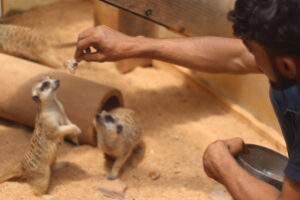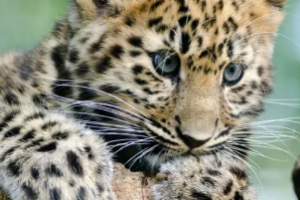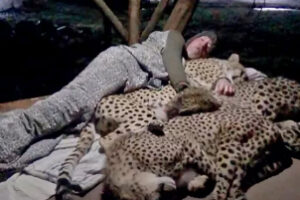
POSITIVE HUMAN-ANIMAL RELATIONSHIPS
POSITIVE HUMAN-ANIMAL RELATIONSHIPS
BY SOHAM MUKHERJEE
Domesticated animals frequently seek out and love to interact with humans. Positive human-animal relationships can induce positive emotions as well as other beneficial outcomes. Nonetheless, our understanding of the fundamental processes that govern animals’ positive perception of humans is limited. From the animal’s point of view, there are a few ideas or experiences associated with the development and maintenance of positive human-animal relationships. This includes things like habituation, associative learning, and, in some cases, attachment or bonding that is based on communication and social cognition. A positive relationship is often assumed of as when the animal seeks out the human and shows signs of anticipation, pleasure, relaxation, or other signs that
they are having a good time together. In some cases, the way animals think about humans may be affected by things like their own history, genetics, and individual preferences, as well as their social and physical environment. Similarly, a person’s familiarity with an animal, their attitude toward it, their skills, and their knowledge all play a role in their relationship with an animal. New research highlights the implications for current practices and suggests simple solutions, such as paying attention to the animal’s behavioral response to humans and giving the animal choice and control over when and how to interact with humans. A better way to get a positive view of humans is to use practical applications, such as training principles while keeping in mind the trust and safety of both people. Overall, there is more and more evidence in the scientific literature that a positive human-animal relationship can make the animals happier and improve their welfare.




